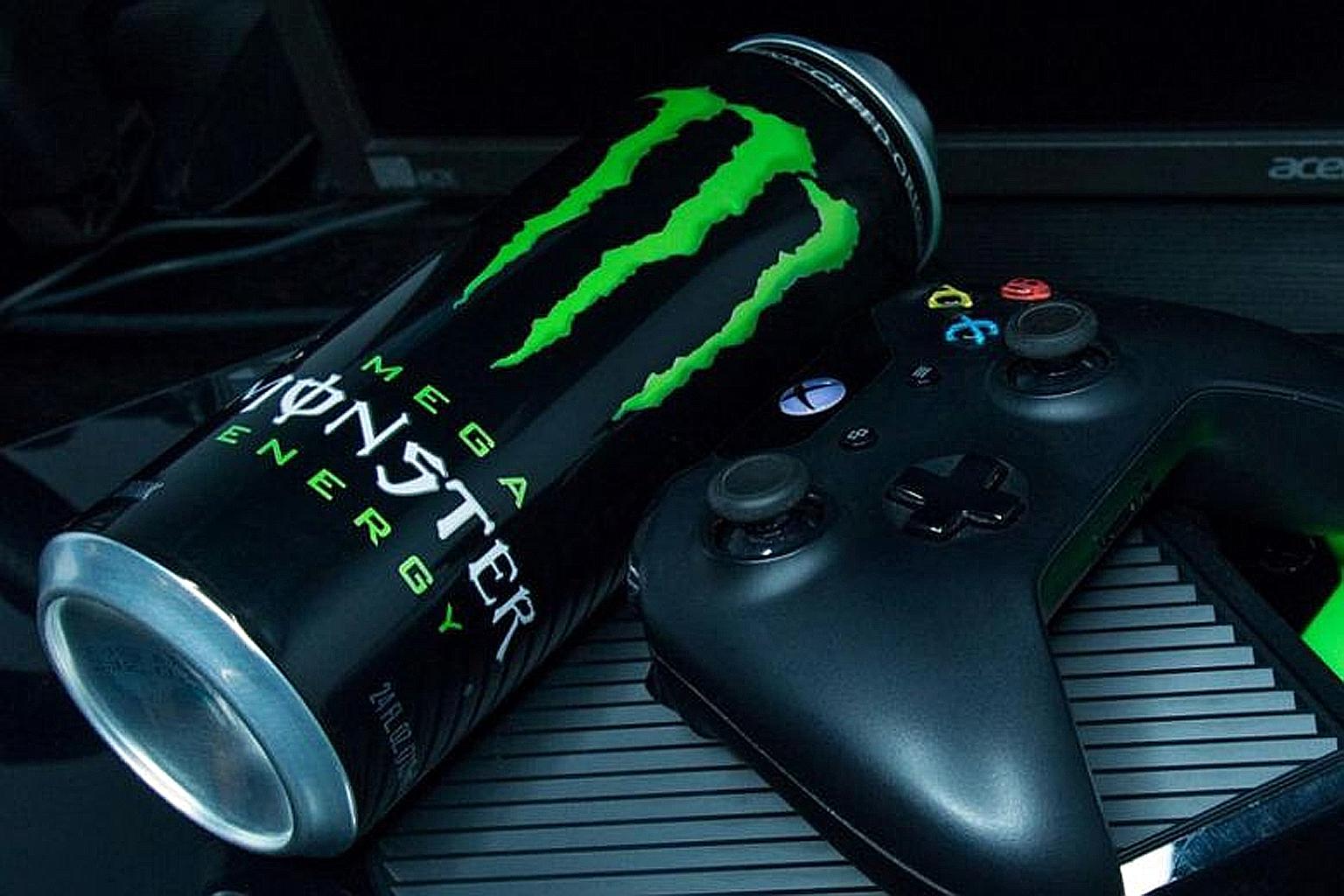Drink firm fails to block Tencent's trademark
Monster Energy took on China firm in bid to stop registration of Monster Castle mark
Sign up now: Get ST's newsletters delivered to your inbox

Tencent's mark is more dissimilar to Monster Energy (above) than it is similar, Ipos' hearing officer ruled.
PHOTO: MONSTER ENERGY/TWITTER
Follow topic:
Energy drink manufacturer Monster Energy Company (MEC) failed in its bid to stop China's heavyweight Tencent Holdings from registering its Monster Castle trademark in Singapore.
Assistant registrar of trade marks Gabriel Ong overruled MEC's objections, noting this is the company's fourth case to reach a full tribunal hearing in which MEC objected to the registration of a trademark with the word "monster".
"I will call a spade a spade: The application mark is, if anything, even more dissimilar to Monster Energy than (the mark in a preceding case)," said Mr Ong , the hearing officer from the Intellectual Property Office of Singapore, when giving his decision grounds last week.
Tencent, known for its Web portal QQ.com and WeChat mobile application among the various services it provides, applied to register the Monster Castle trademark in Singapore in 2015.
It is used in connection with its Monster Castle game, said to be the world's No. 1 vertical tower defence and strategy game. It requires a player to build towers in a strategic way to defend against waves of enemy attackers out to destroy the player's base.
MEC, which deals in energy drinks and promotes its trademarks through indirect channels like athlete endorsements, relies on eight registered trademarks which predate Tencent's application to register its trademark in Classes 9, 41 and 42 under the goods and services category.
The three classes include scientific, nautical and digital media products, as well as services in education, entertainment and sporting activities, and a separate class dealing with scientific, technological services and software and hardware design, among other things.
MEC's lawyers, Mr Just Wang and Mr Marcus Lim, had argued that the goods and services registered to carry the Monster Energy trademarks had a high, or at the very least a normal, level of "inherent distinctiveness".
They also said there was a high degree of visual similarity between the competing marks, pointing out that both had "Monster" as the dominant component.
Disagreeing, Tencent's lawyers, Ms Ang Su-Lin and Ms Loi Choi Sieng, countered that Monster Energy is registered in plain font with words appearing next to each other, while Monster Castle is stylised, which renders a three-dimensional effect, among other things.
Mr Ong found both marks to be visually different, noting the second words in each mark, "energy" and "castle", play "a material role in the comparison".
Monster Energy had hinged its case on the point that the word "monster" is the distinctive and dominant portion of both marks.
Mr Ong, who had assessed the marks "visually, aurally and conceptually", rejected it, saying "the marks are more dissimilar than similar overall".

